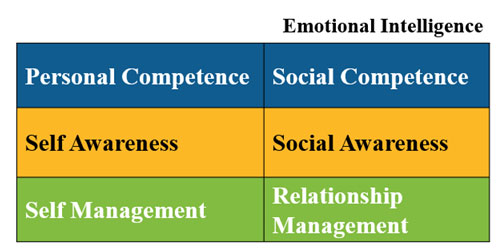Is your typical workday filled with unproductive meetings, confrontational conflicts, lack of follow-through by colleagues, innovative ideas stalled due to work-flow being halted, or even missed deadlines? That’s not only frustrating, but it’s also exhausting!
When you run into these challenges, are you looking around the room blaming others for what they are or are not doing? Most people do just that. It’s always someone else failing to perform. What if you stopped and asked yourself, “What’s my part in this? How am I contributing to the success or failure of our team, project, company sales?”
We all have blind spots – behaviors we perform that we are not aware of. That may sound funny – you may wonder how can someone do or say something and not be aware of what they are doing or even what they are saying? It happens.
Have you ever been out late, either working or at an event and you’re exhausted yet you had a long drive home? Then when you got home you could hardly remember the drive?When that happens, we’re working in autopilot mode. We’ve allowed our subconscious brain to direct our behaviors –without us needing to consciously give much thought to what we’re doing. Many people go through life in this state of auto-pilot. It’s also referred to as your comfort-zone – because you’re not consciously engaged and stretching yourself. Instead, you’re going through the motions. You get up each day, grab your phone and check social media, drink your coffee, and drive the same route to work – without really thinking about it.
This is a dangerous way to live, or to work. Nothing great comes out of this kind of zombie-like living. I’d like to challenge you to stop periodically during your day and check-in with yourself.
Ask yourself these questions:
- What am I thinking about right now? We all have a continual conversation running in our minds at any given time. Often, we’re not aware of those thoughts – yet those subconscious thoughts are controlling our behaviors, or reactions to those around us, and how we behave. Those subconscious thoughts limit the options we see available to us, as they filter every conversation we have.
- What am I feeling in my body right now? Our bodies are beautifully designed like a computer to house our spirit – the essence of who we are. Our bodies communicate with us constantly to help us identify how we’re feeling, to know if we are in danger, or at risk. Yet most of us stay so preoccupied and busy that we rarely notice what our bodies are telling us. In fact, the people around us can often read our body language–smirks, rolled eyes, slumped shoulders, hands forming fists – and they understand what’s happening within us before we do!
One of life’s most critical skills, that determines our success, is emotional intelligence. Understanding our emotions – understanding how our emotions impact us, and the people around us. Do you realize that your decisions are all based on emotions – not logic?
Emotional intelligence has two parts: Personal Competence and Social Competence. Personal Competence consists of Self-Awareness (knowing your thoughts, emotions, and fears) and Self-Management (how you control your impulses); while Social Competence consists of Social Awareness (what’s happening emotionally with those around you) and Relationship Management (how well you use empathy and compassion to build relationships).
 To be our best selves, we need to be able to lead ourselves first, to become aware of our thoughts, our limiting beliefs, the fears, and emotional hurts that rise up within us at certain sounds, tones of voice, or how the behavior from someone else creates a negative reaction within us. This self-awareness is critical so that we can stop REACTING to others. Self-awareness allows us to develop self-regulation, (instead of being a hot-head) where we manage our impulsive behavior. Through self-awareness we learn how to regulate our breathe and utilize the full 30-seconds between stimuli and our response to manage self-control.
To be our best selves, we need to be able to lead ourselves first, to become aware of our thoughts, our limiting beliefs, the fears, and emotional hurts that rise up within us at certain sounds, tones of voice, or how the behavior from someone else creates a negative reaction within us. This self-awareness is critical so that we can stop REACTING to others. Self-awareness allows us to develop self-regulation, (instead of being a hot-head) where we manage our impulsive behavior. Through self-awareness we learn how to regulate our breathe and utilize the full 30-seconds between stimuli and our response to manage self-control.
To lead ourselves, we become aware of what we’re thinking and feeling throughout the day. Often, it’s not what someone says to you that throws you into defensive mode – rather it’s your self-talk going on in our head that is filtering what you’re hearing – perhaps telling you you’renot good enough – so we reactively explode on the other person.
Emotions matter. You matter. Take time to understand yourself better – develop those critical life skills of understanding your emotions – emotional intelligence – and you’ll become a better person, a better friend, a better teammate, a better leader. Your level of emotional intelligence is impacting your workplace! Work on improving yourself and your workplace will improve!












